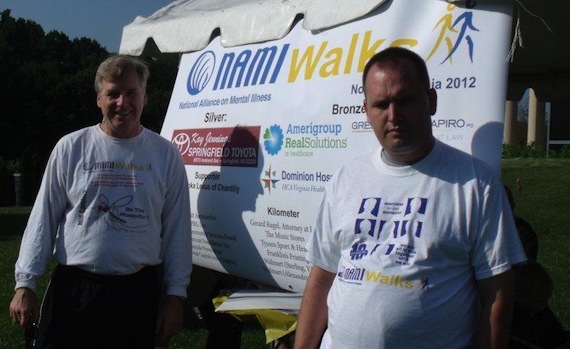If you haven’t seen a film entitled A Sister’s Call by Rebecca Schaper and Klye Tekiela you need to watch it. It is one of the most honest and moving documentaries that I’ve had the privilege of watching. (Check out the film’s three minute trailer above.)
I met Rebecca Schaper a week ago while speaking at the annual fundraiser for the National Alliance on Mental Illness chapter in Greenville, South Carolina. Her film was being honored by the local NAMI chapter because Rebecca’s brother, Call Richmond Jr., lived in Greenville and much of the filming of the documentary was done there.
Call was diagnosed with paranoid schzophrenia. In 1977, he disappeared and stayed missing for twenty years. When he finally reappeared, Rebecca took on the tasks of both rescuing her older brother and bringing him back into her family.







